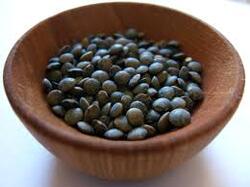|
If you have been keeping up the news, Fort Collins is starting 2014 with a bang. Not only did USA Today Travel rank our city as the #2 Best U.S. Cycling Town, but Time recently reported “94.9% of Fort Collins residents say they are satisfied with the city — a higher percentage than found in any other American city.” While many factors play into why residents love this town, we know great health is one of the top reasons. With the numerous bike trails and outdoor activities, Fort Collins residents are not only happy, but also healthy.
According to USA Today, the Alliance for Biking and Walking recently found “levels of obesity, high blood pressure and diabetes are lower in cities where a higher percentage of commuters bicycle or walk to work…” Jeffrey Miller, president and CEO of the Alliance for Biking and Walking, commented, “It’s not surprising to see that we have a correlation between public health and levels of biking and walking. Still, it’s good to have the data. It’s a very positive thing that we need to highlight.” So dust off your bikes and get to riding! With our 310-mile network of paths and bike lanes, Fort Collins is the perfect city to commute to work or enjoy a weekend ride. According to an article by Time Magazine, “Your doctor could soon be prescribing crucial shuteye as treatment for everything from obesity to ADHD to mental health as experts say carving out time for sleep is just as important as diet and exercise.” As stated by the article, researchers have known for some time that sleep is critical for weight maintenance and hormone balance, and too little sleep is linked to many diseases and heart problem as well as mental health. However, it wasn’t until recent that research on sleep became a paramount component of the medical industry in terms of treatment of various conditions.
Do you include chickpeas, lentils or peas in your daily diet? If not, you may want to reconsider.  The Canadian Medial Association Journal suggests, “Daily consumption of non-oil-seed legumes can significantly reduce ‘bad cholesterol’ and cut the risk of heart disease.” The Huffington Post also reports, in 26 randomized-controlled studies of 1,037 people, researchers found LDL cholesterol levels decreased by 5 percent in those who consumed one daily serving of legumes. This change in cholesterol was seen after six weeks. A 5 percent reduction in LDL cholesterol can suggest a lower risk of heart disease according to research presented in HealthDay. In general, researchers are finding legume consumption can prove beneficial to health. If lentils or peas are not part of your daily diet, consider adding a handful to your next salad or soup. Peas can also make a great side dish for dinner. Eat up! According to NBC News, a decade long study involving almost 60,000 middle-aged women shows that “after just nine years…8.5 percent of the women who drank two or more diet drinks a day had some sort of heart disease.” The average age in this study was 62 years old.
The Huffington Post also reported “women who consumed two or more diet drinks daily were not only 30 percent more likely to suffer heart attacks and strokes, they were 50 percent more likely to die from some sort of cardiovascular disease, when compared with women who never or rarely drank diet drinks.” These are not the only sources that have spoken out about the danger of diet drinks for postmenopausal women. HealthDay recently released information about diet drinks being linked to blood clots (among other diseases), and articles about this study are published in both Reuters and MedPage Today. While further research is still being conducted in the connection between diet drinks and heart risk in women, consider swapping out any artificially sweetened beverages for healthy alternatives such as water or tea.  According to the NPR Health Blog, research presented at the European Breast Cancer Conference suggests, “exercise reduces women’s risk of breast cancer [regardless of] what kind of exercise they do, how old they are, how much they weigh, or when they get started.” Data from numerous studies conducted between 1987 and 2013 involving more than 4 million women led researchers to agree “the more active a woman is, the better her odds of avoiding breast cancer.” Additionally, the most active women in the studies reduced the risk by 12 percent (HealthDay). What does this mean? Stay active! If even the smallest amount of exercise can help reduce breast cancer risk, consider adding an evening walk to your daily routine or trying a new fitness class in town. And if you are already an active woman, keep up to good work-you are benefiting your health! |
MMSMedical Metabolic Specialists, located in Fort Collins, Colorado, is dedicated to using the latest scientific techniques to create a comprehensive, individualized. lifelong weight management program to improve your overall health. Archives
October 2023
Categories
All
|






 RSS Feed
RSS Feed